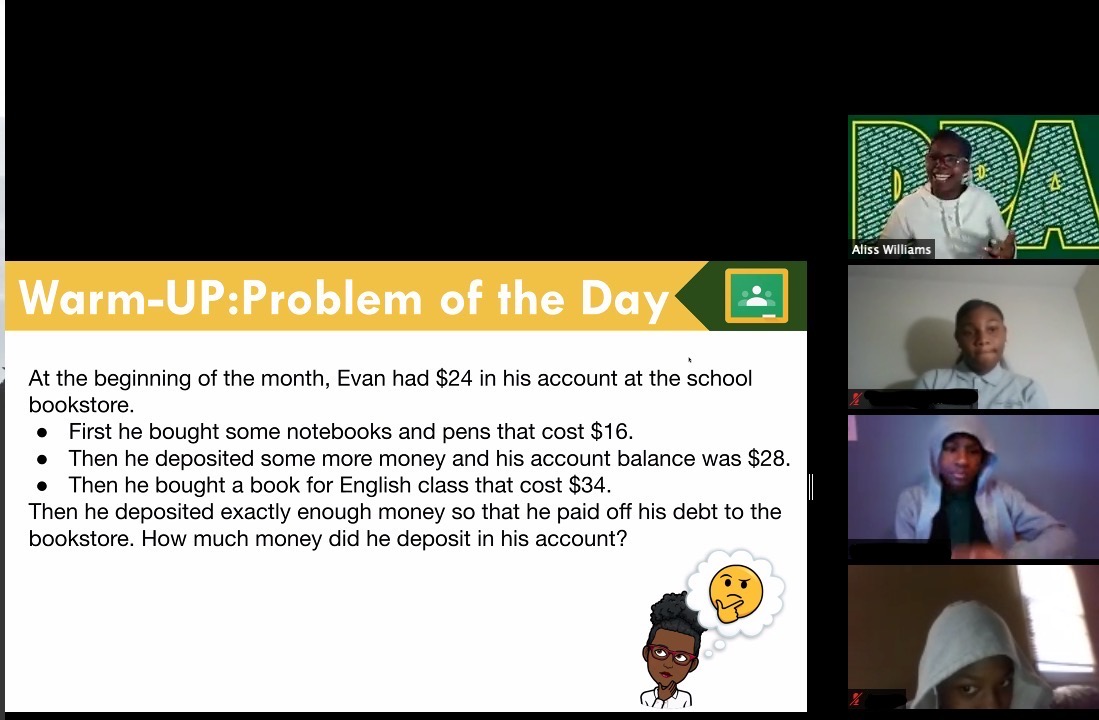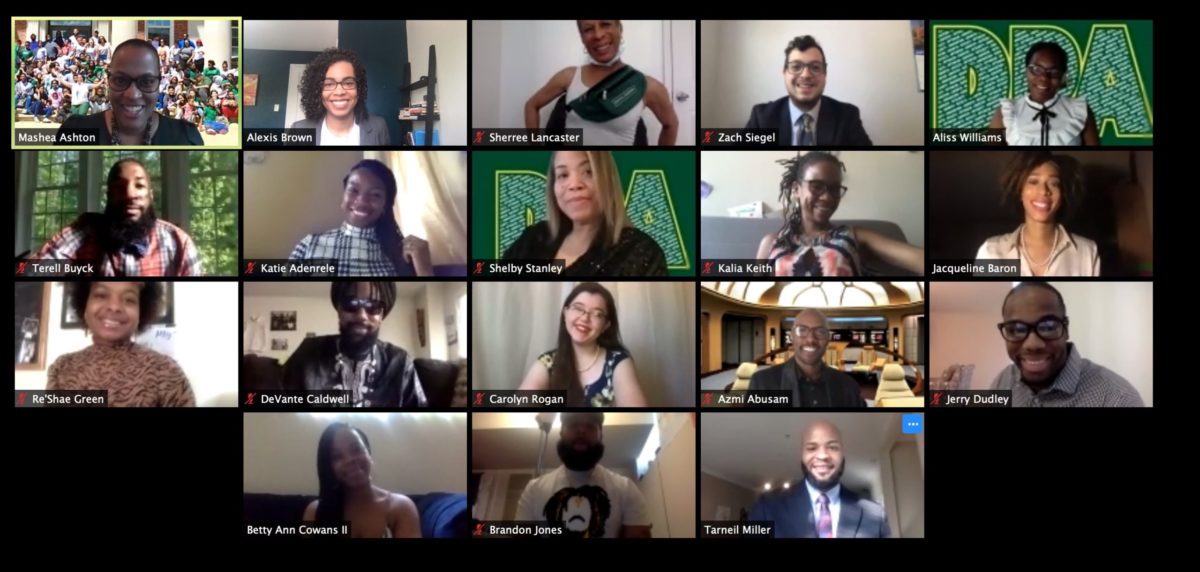As education institutions across the District and the U.S. have struggled with providing tech and internet access to their students amid the COVID-19 pandemic and subsequent move to remote learning, a two-year-old, computer science-focused school serving middle schoolers in Southeast D.C. has committed to keeping its students connected.
Digital Pioneers Academy (DPA) is on a mission to develop the next generation of innovators, Principal Mashea Ashton told Technical.ly. The public charter school welcomed its first class of students — a group of 120 sixth graders — in the fall of 2018, and for the upcoming 2020-2021 school year, DPA will have 360 students from sixth through eighth grade. Ashton said the school plans to add a grade each year to eventually serve students from sixth to 12th grade, ultimately becoming a college preparatory school.
“We want to prepare scholars to meet or exceed the highest academic standards and cultivate the strength of character necessary to both graduate from four-year colleges and thrive in 21st-century careers,” she said. “We’re the first computer science-focused middle school in D.C., and we believe that all students should have access to technology and the opportunity to thrive.”
But DPA is more unique than just being a new, digital-savvy educational institution in the region.
The school’s students are 99% Black and 1% Latinx and mostly reside in Wards 7 and 8, areas that are widely affected by D.C.’s digital divide. Ashton described these wards as “areas which have immense talent pools, but often are not provided access to opportunities like tech and computer science historically and continues to be marginalized from access to educational opportunities and 21st century careers.”
As soon as COVID-19 hit, DPA adjusted to a long-term remote learning plan by prioritizing:
- A daily schedule with online learning classes focused on math, English language arts, computer science and enrichment courses
- Giving every student a tech device and access to internet to participate in online classes;
- Creating a hotline for tech issues, coordinating food distribution and hosting community meetings to gain feedback on remote learning and meet the physical and emotional needs of families
The school will also be using the summer to enhance its remote learning program by adding more rigorous and comprehensive courses.
“We know that in-person learning is best for scholars in the long run academically and developmentally,” Ashton said. “However, we acknowledged the brutal facts early on that remote learning will be a reality for the near future, and since we cannot rush back into schools, we had to make remote learning as high quality as we could.”

Ashton said DPA ending the most recent school year with 100% of its students using a tech device at home, 95% having reliable internet access, 81% consistently attending online courses throughout the semester and 91% completing final exams. She said 94% of parents surveyed said they are satisfied or very satisfied with how DPA has handled remote learning through the pandemic.
Since DPA is a one-to-one school, each scholar is equipped with a Chromebook while on campus, but they were distributed to students to take home when the pandemic started. The school also needed to acquire internet hotspots to distribute in response to COVID-19.
Each student returning next school year gets to keep their device through the summer. Ashton said many returning students will be using these devices to participate in the DPA Summer Academy, a program the school is hosting in partnership with the National Summer School Initiative to keep students engaged in academics until the fall. The one-month, live remote program plans to serve 72 students across classes in classes in math, English language arts, and “movement and mindfulness.”
“Acquiring and distributing devices and internet access needs to be the priority of every school because learning cannot occur without access to content and teachers,” she said. “As we are welcoming 120 new scholars to our sixth-grade class, technology distribution is among the most urgent priorities for us this summer.”
The distribution of tech devices was already built into the school’s model, Ashton said. As it welcomes more students, DPA will draw from grants, partner organizations’ donations and other financial contributions to acquire and distribute more devices.
Looking ahead at the upcoming school year, Ashton said the school is working on the safest plan to reopen. Each grade will be held in person at least one day a week, while continuing remote learning four days a week. The school will assess plans for further reopening on a quarterly basis.
“We are contextualizing our remote learning plan in a five- to seven-year timeline that prepares our scholars to succeed in college and 21st-century careers,” Ashton said. “Starting slow now provides the consistency and reliability for our school to move fast in the future, expediting our ability to return to our in-person model and deliver on our mission with as little disruption as possible.”







